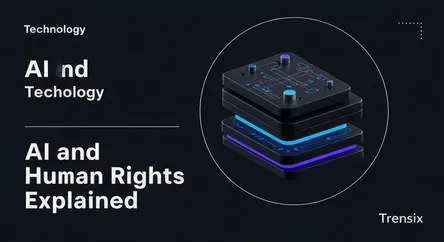Technology
AI and Human Rights Explained

Discover the complex relationship between artificial intelligence and fundamental human rights, from algorithmic bias to surveillance and privacy concerns.
What is it?
AI and Human Rights is the critical field examining how artificial intelligence impacts fundamental rights and freedoms. It explores how AI systems, from facial recognition to automated hiring tools, can uphold or undermine principles like privacy, equality, and freedom of expression. The core focus is on ensuring that the development and deployment of AI are governed by ethical considerations and legal frameworks that protect human dignity and prevent discrimination, ensuring accountability for automated decisions.
Why is it trending?
This topic is trending due to AI's rapid integration into high-stakes areas of society. Governments and corporations are deploying AI in criminal justice, social welfare, and employment, raising urgent questions about fairness and oversight. High-profile cases of algorithmic bias, where AI has perpetuated societal prejudices, and growing concerns over mass surveillance have fueled public debate. This has spurred a global movement towards regulation, such as the EU's AI Act, to establish clear rules for responsible AI.
How does it affect people?
AI directly affects people's lives and opportunities. A biased algorithm could unfairly deny someone a loan, a job, or parole. AI-powered surveillance can have a chilling effect on free speech and the right to peaceful assembly. Inaccurate automated systems can lead to wrongful arrests or the denial of essential services. The challenge lies in harnessing AI's potential for good while implementing safeguards to prevent these systems from infringing on the basic rights that form the foundation of democratic societies.